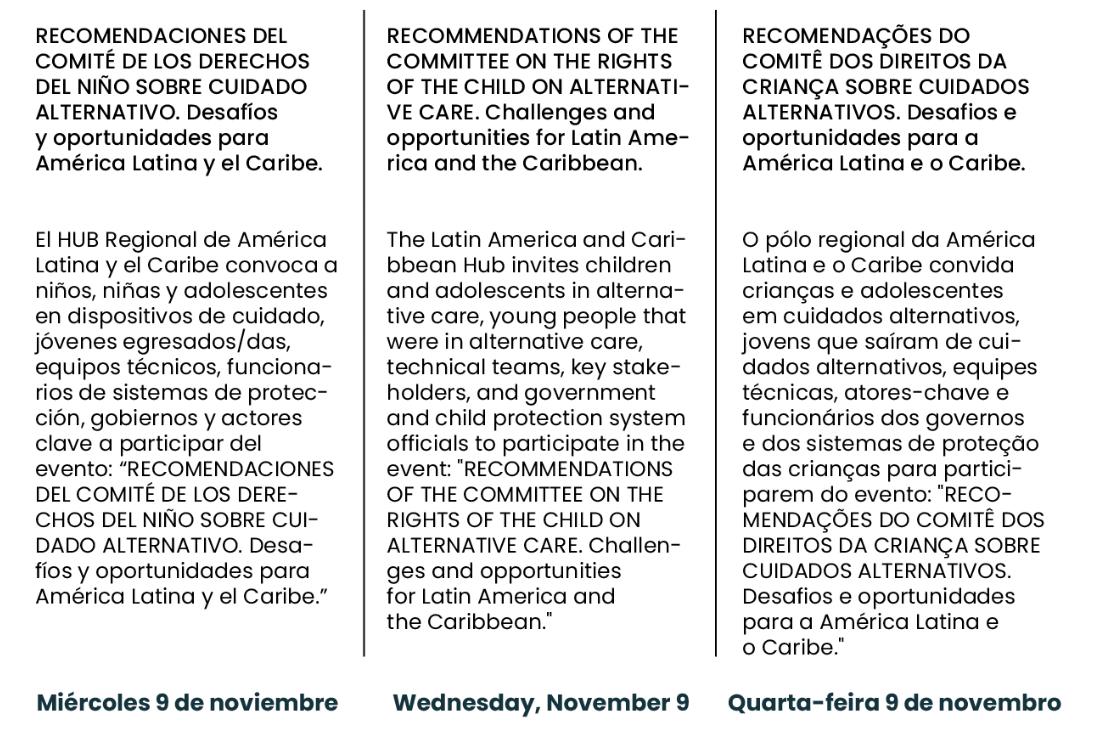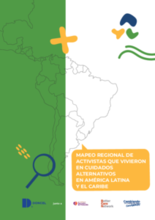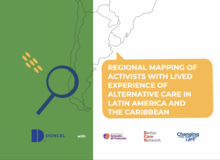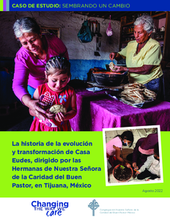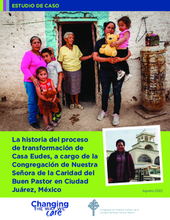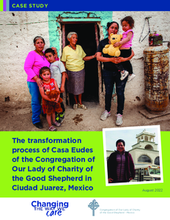Displaying 41 - 50 of 379
Para garantizar que las personas que han vivido en cuidados alternativos puedan participar de los procesos y decisiones para mejorar los sistemas de cuidado, Doncel junto a la Red Latinoamericana de Egresados de Protección, Better Care Network y Cambiando la Forma en Que Cuidamos (Changing The Way We Care en inglés) llevaron adelante el primer mapeo regional de activistas que vivieron en cuidados alternativos en América Latina y el Caribe.
This is the first regional mapping of activists with care experience in Latin America and the Caribbean.
JUAREZ, Mexico (Border Report) – Juarez authorities late Monday bused dozens of Venezuelan migrants expelled from the United States to an emergency shelter – a move to prevent single adults and families with children from sleeping on the streets again.
Este estudio de caso destaca la transición de servicios de cuidado residencial a los basados en la familia y comunidad, realizado por las Hermanas de Nuestra Señora de la Caridad del Buen Pastor, en Tijuana B.C., México.
This case study highlights the transition of the Sisters of Our Lady of Charity of the Good Shepherd in Tijuana. It presents the highs and lows that come with a change process of moving from residential care to community-based services focused on family strengthening.
Este estudio de caso destaca la transición de servicios de cuidado residencial a los basados en la familia y comunidad las realizado por las Hermanas de Nuestra Señora de la Caridad del Buen Pastor, en Ciudad Juárez, México.
This case study highlights the transition of the Sisters of Our Lady of Charity of the Good Shepherd in Ciudad Juarez. It is an honest look at the emotional, logistical, and practical elements involved in transitioning from a residential care model which existed for more than 100 years to a provider of community-based and family-centered services.
This has been the deadliest year ever for migrants trying to cross the U.S.-Mexico border. More than 800 migrants have died border-wide in the fiscal year that ends this week, according to internal government figures shared by a senior Border Patrol official.

